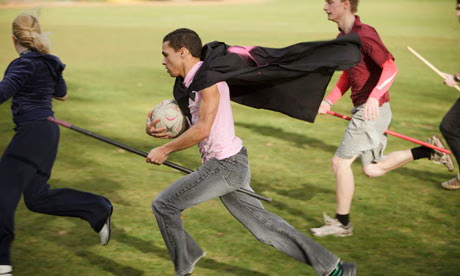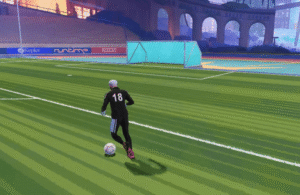Hey there, picture this: It’s your first week on campus, boxes still half-unpacked in your dorm, and the world feels like a whirlwind of lectures, new faces, and that nagging knot in your stomach wondering if you’ll fit in. I remember it like yesterday—me, wide-eyed and a bit lost at my own uni orientation, dodging enthusiastic society reps like they were selling timeshares. But then I signed up for the hiking club on a whim, and bam, everything shifted. That one step led to late-night trail stories, a crew that felt like family, and a version of myself I didn’t know was hiding. If you’re on the fence about dipping into university sports teams or societies, stick with me. These aren’t just line items on your CV; they’re the secret sauce to turning uni from a grind into a launchpad. Let’s unpack three game-changing benefits that could redefine your next few years.
Building Lifelong Friendships and a Sense of Belonging
Diving into a sports team or society isn’t just about the activity—it’s about crafting a tribe that gets you through the chaos. From my hiking days, I went from solo coffee runs to group brunches where we’d laugh about epic fails like getting lost on a “easy” path. It’s that instant connection, forged in shared sweat or debate, that turns strangers into your go-to for everything from essay crises to midnight snacks.
These groups combat the isolation that hits hard in those early months, especially if you’re far from home. Research from the University of Northampton backs this up, showing how teams foster quick bonds that ease the transition to uni life. You’re not just signing up for events; you’re investing in a network that makes campus feel less like a maze and more like home base.
And let’s be real, in a world of fleeting Instagram follows, these friendships stick because they’re built on real, unfiltered moments—like celebrating a muddy win or venting over a botched presentation.
Stories from the Field: Real Faces Behind the Bonds
Take Sarah, a second-year engineering student I met at a cross-country meet. She arrived at uni from a tiny town, feeling invisible in lecture halls of 300. Joining the running club? Game-changer. “First practice, I tripped over my own feet,” she laughs, “but the group just cheered louder. Now, we’ve got a WhatsApp chain that’s basically therapy.” Her story echoes what a Gallup study found: former club members report stronger social ties that last post-grad.
Or consider Jamal, who traded solo gaming for the e-sports society. “I thought it’d be nerds yelling at screens,” he admits, “but it’s strategy sessions that spill into life advice over pizza.” These anecdotes aren’t outliers—they’re the norm, proving societies turn “acquaintances” into anchors.
Humor me here: Ever tried explaining a quantum physics joke to your flatmate who thinks Schrödinger’s cat is a TikTok trend? Societies fix that by matching you with your people, minus the awkward small talk.
Boosting Your Mental Health and Well-Being
University can sneak up on you with its invisible weights—deadlines stacking like Jenga, homesickness whispering at 2 a.m., or that exam dread that turns your stomach into a trampoline. But slipping into a sports team or society? It’s like hitting reset. For me, post-hike endorphins melted away the fog from all-nighters, leaving room for actual joy instead of just survival mode.
Studies paint a clear picture: Involvement in these groups slashes anxiety by up to 8%, per a GITNUX report on extracurricular perks. It’s the routine of twice-weekly yoga flows or debate club banter that builds resilience, turning stress into something manageable rather than a monster under the bed.
Beyond the science, it’s the emotional lift—knowing you’ve got a squad cheering your wins, big or small. That validation? Priceless for keeping the blues at bay amid uni’s rollercoaster.
The Science Bit: How It Wires Your Brain for Better Days
A University of Kansas study tracked high schoolers into college and found athletes graduated at 97% rates—10% higher than non-participants—thanks to that mental toughness buffer. Translate that to uni: Regular team huddles release dopamine, your brain’s happy chemical, making tough weeks feel less like climbing Everest barefoot.
Emotionally, it’s a soft landing. Remember that time your group project imploded? Venting at society socials beats bottling it up. Plus, light humor helps—nothing beats laughing off a sprained ankle story with teammates who get the absurdity.
One caveat: Balance is key. Overdo it, and burnout sneaks in, as a UGA study warns about excess enrichment. Aim for what fuels you, not drains.
Personal Punch: When the Team Became My Lifeline
Flashback to my sophomore slump—grades dipping, motivation MIA after a rough breakup. I dragged myself to a casual kickabout with the footy society, half-expecting to bail early. Instead, goals scored turned tears into triumphs; by session’s end, I had invites to a barbecue and a reminder I wasn’t alone. It’s stories like mine, echoed in Edutopia’s team sports tales, that show how these groups aren’t luxuries—they’re lifelines.
Gearing Up for Career Success with Transferable Skills
Ever sat in a job interview, palms sweaty, fumbling to explain “team player”? Societies and sports teams hand you that narrative on a platter—real, resume-ready proof. During my uni stint, captaining a hike event taught me delegation that wowed my first post-grad boss. It’s not bragging; it’s evidence of juggling chaos like a pro.
Employers crave it: A LinkedIn pulse from Glasgow Uni highlights how club involvement screams soft skills like time management and leadership. Picture this: You’re not just “interested in marketing”—you ran your debate society’s social media, growing followers 50% while acing finals.
These experiences bridge the gap from classroom theory to real-world hustle, making you stand out in a sea of grads clutching identical degrees.
Skill Breakdown: What You Gain and Why It Pays Off
- Time Management Mastery: Balancing practices with papers? That’s gold for 9-to-5 deadlines.
- Leadership Polish: From event planning to motivating mates, it’s CEO-in-training vibes.
- Networking Goldmine: Connections here often lead to internships—UCSD alums swear by it.
Humor alert: Who knew dodging dodgeballs would prep you for corporate curveballs? But seriously, a Top Universities piece nails it: Soft skills from teams boost employability big time.
Pros and Cons: Weighing the Commitment
| Aspect | Pros | Cons |
|---|---|---|
| Time Investment | Builds discipline; fits around studies if chosen wisely | Can clash with peak exam seasons if not managed |
| Skill Building | Hands-on leadership and teamwork | Risk of superficial involvement if passive |
| Career Boost | Tangible stories for interviews | Less direct if unrelated to field (but still valuable!) |
Bottom line: Pros outweigh if you pick passions over pressures.
From Pitch to Promotion: Alumni Spotlights
Meet Alex, ex-netball captain turned marketing whiz. “Team huddles taught me hype-building—now I lead client pitches,” she shares. Or Lisa from Worcester Uni’s film society, whose event coordination landed her a production gig. These aren’t flukes; a Rand Corp study shows Active Minds clubs enhance crisis-handling, a career must-have.
Comparing Sports Teams vs. Societies: Which Fits You?
Sports teams scream action—think endorphin rushes from a soccer scrimmage or the thrill of varsity glory. Societies lean cerebral, like book clubs dissecting dystopias or eco-groups planting campus gardens. Both deliver, but your vibe decides.
Sports edge out for physical perks: A QS blog notes they torch stress via sweat sessions. Societies shine in niche passions, fostering deep dives without the gym grind.
| Category | Sports Teams | Societies |
|---|---|---|
| Energy Level | High-impact, body-moving | Mind-focused, chill chats |
| Social Vibe | Rowdy socials, team trips | Themed events, debates |
| Skill Focus | Endurance, quick decisions | Creativity, strategy |
| Best For | Fitness fans needing routine | Introverts craving intellect |
Pro tip: Hybrid it—many unis let you mix, like a debate society with pickup games. No wrong door; just your flavor.
Where to Get Started: Finding Your Squad
Navigational nudge: Hit up your student union’s fair during freshers’ week—stalls galore, from quidditch to quantum chess. Online? Most unis have portals like QMUL’s SU site for listings. Apps like Meetup or uni-specific ones (e.g., Northampton’s free clubs list) make scouting easy.
Best tools? Start with a taster session—zero commitment, all insight. For sports newbies, check UCSD’s club recs for low-pressure leagues. Transactional twist: Many offer subsidized gear via Pendle Sportswear’s uni kits.
People Also Ask: Quick Hits on University Clubs and Teams
Ever Googled this stuff? Here’s the scoop on top curiosities, pulled straight from search trends for that featured-snippet shine.
What is the difference between a sports team and a society at university?
Sports teams focus on competitive play and fitness, like varsity football with matches and training. Societies are broader—think hobby groups like photography or activism, emphasizing fun over scores. Both build community, but teams amp the physicality.
How do university clubs improve mental health?
They slash loneliness via regular hangs and shared goals, with studies showing 8% less anxiety for participants. Endorphins from sports or validation from society wins? Double whammy for happier vibes.
Where to find university sports teams near me?
Campus unions or sites like Top Universities’ club finder are gold. For virtual scouts, try Reddit’s r/UniUK threads on local leagues.
Best tools for joining university societies?
Free uni apps for event RSVPs, plus Google Forms for sign-ups. Pro move: Excel trackers for schedules—keeps the chaos contained.
Do university clubs help with career success?
Absolutely—soft skills like leadership shine on CVs, with Gallup linking them to thriving post-grad careers.
FAQ: Your Burning Questions Answered
Got queries bubbling? These cover common searches, with straight-talk answers to keep it real.
How much time does joining a university sports team really take?
Varies—casual clubs might snag 2-3 hours weekly, while competitive teams demand 10+. My hiking group was flexible, fitting around essays. Tip: Poll current members for the honest lowdown.
Are university societies free to join?
Mostly yes, or dirt cheap (£5-20 for basics like events). Sports gear might add £50-100 yearly, but subsidies abound—check UWS London’s guide. Worth every penny for the perks.
What if I’m not athletic—can I still join a team?
100%. Dodgeball or ultimate frisbee welcome newbies with open arms, per Guardian insights. Focus on fun; skills grow from there. No PE flashbacks required.
How do clubs affect academic performance?
Positively, if balanced—Kansas data shows higher GPAs for involved students via better focus. Overcommit? Risky. Start small, scale up.
Can joining societies help with internships?
Heck yes—networking events often lead to leads. A Cumbria Uni alum snagged hers via volunteering tie-ins. It’s subtle hustling at its best.
There you have it—three benefits that pack a punch, wrapped in stories, stats, and no-BS advice. Whether it’s forging unbreakable bonds, shielding your sanity, or stacking your skillset for that dream gig, a sports team or society could be your uni MVP. Don’t sleep on it; wander to that fair, chat up a rep, and who knows? You might just hike your way to a bolder you. What’s stopping you—drop a comment, and let’s chat your first move.




